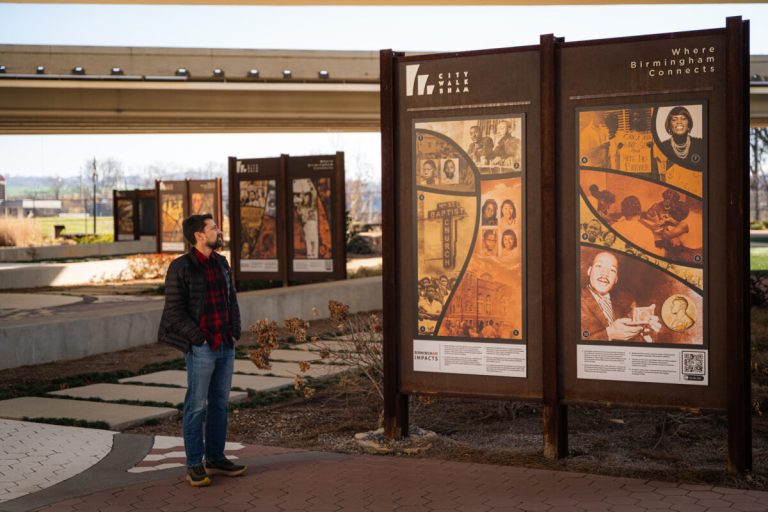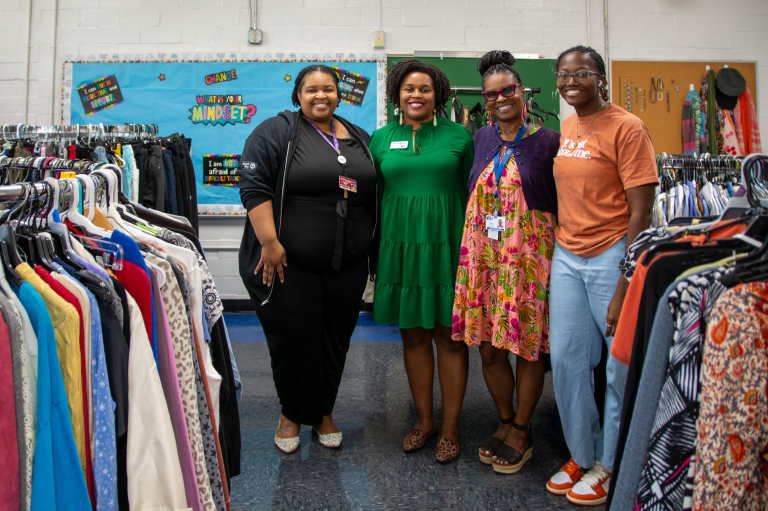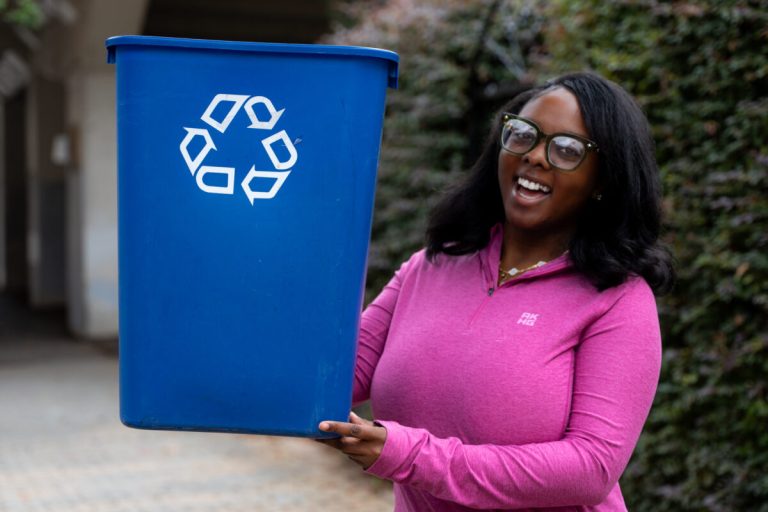Reviewed by: Sharron Swain
The only farm-to-table university dining in the state is at Auburn—check it out now
Reading time: 4 minutes
Sponsored

Imagine you’re a student at Auburn’s College of Agriculture—you work inside an air-conditioned freight car that grows pounds of lettuce, and in the dining hall, your friends are eating salads that you grew.
This is the story of Caroline, Connor, and many other Auburn scholars. Read on to learn how the university has mastered farm-to-table dining and sustainable growing methods.
Innovative fisheries

When you walk into Auburn’s aquaponics facility, you’ll see lots of fish tanks and tomato plants, but you may not realize the creative ways the facility utilizes waste.
As a professor of Biosystems Engineering, Dr. Brendan Higgins knows how to put waste to good use.
“In Biosystems Engineering, we take waste products and turn them back into something good. When we apply horticulture to that process, we utilize wastes to grow plants.”
Dr. Brendan Higgins, Associate Professor, Biosystems Engineering, Auburn University
This is how it works at Auburn’s aquaponics facility: The tilapia excrete waste, and the tank’s microbial community transforms this waste into nutrients used to grow plants. The microbial community is the key player here and is sometimes called “the magic sauce” by aquaponics researchers.
This sustainable process allows Auburn to further their hands-on research and provide tasty farm-to-table fish and veggies for on-campus dining.
Gorgeous Vertical Farms
Don’t let the appearance of Auburn’s second farm-to-table growing spot fool you. This freight car—known as the Vertical Farms—can produce some serious veggies for Auburn’s on-campus dining facilities.
Plus, the Vertical Farms are just as sustainable as the aquaponics facilities. Auburn Agriculture PhD student Caroline Blanchard supervises the growing process and doesn’t let a single nutrient out of her sight:
“Anything we can’t harvest for people, we compost so nothing goes to waste. We apply these nutrients to our plants, and we gather any water condensed out of the air conditioner to go back into the hydroponics system. The only nutrients leaving the Vertical Farms are those inside the plants.”
Caroline Blanchard, PhD student, Auburn College of Agriculture
Interested in a sustainable and innovative industry? Apply to Auburn’s College of Agriculture today.
Hands-on agricultural learning opportunities

The aquaponics facility and Vertical Farms also offer Auburn Agriculture students excellent hands-on learning opportunities. Both farm-to-table centers are completely run by graduate and undergraduate students.
“These facilities provide students real opportunties to witness the parameters that contribute to plant growth such as light levels, nutrient concentrations and irrigation amounts.”
Caroline Blanchard, PhD student, Auburn College of Agriculture
Undergraduate student Connor Austin has loved working at the Vertical Farms this semester and plans to carry the skills he’s learning into his future career.
“Last year, I took it for granted how easily I could get nutritious food on my plate at the dining facilities. Now, I get a behind-the-scenes look at the growing process, and my career goal is to replicate the Vertical Farms in underprivileged urban communities.”
Connor Austin, Horticulture Major, Auburn College of Agriculture
Check out the Beat Bama Food Drive

Auburn doesn’t just focus on supplying nutrient-dense food to their on-campus dining facilities; they reach out to the community as well.
For 29 years, Auburn and Alabama have annually competed in a food drive leading up to the iconic Iron Bowl weekend. Each year, the universities and communities partner with local food banks to fight local food insecurity.
After all, fighting food insecurity is one of the primary reasons the agricultural sector exists:
“Without modern agriculture, we’d only be able to feed a fraction of the earth’s population. But with our advanced systems, we can expand and intensify nature’s process to supply food for 8 billion people. Modern agriculture is what puts the food on our plates.”
Dr. Brendan Higgins, Associate Professor, Biosystems Engineering, Auburn University
Looking for a hands-on and lucrative career path? Check out Auburn’s College of Agriculture today.
Sponsored by:







